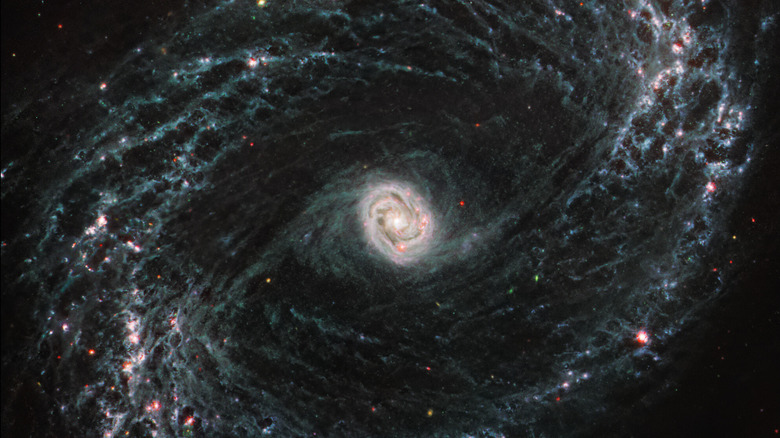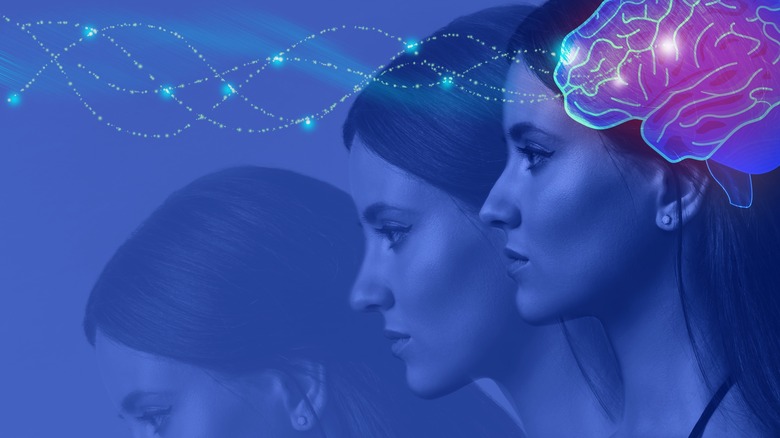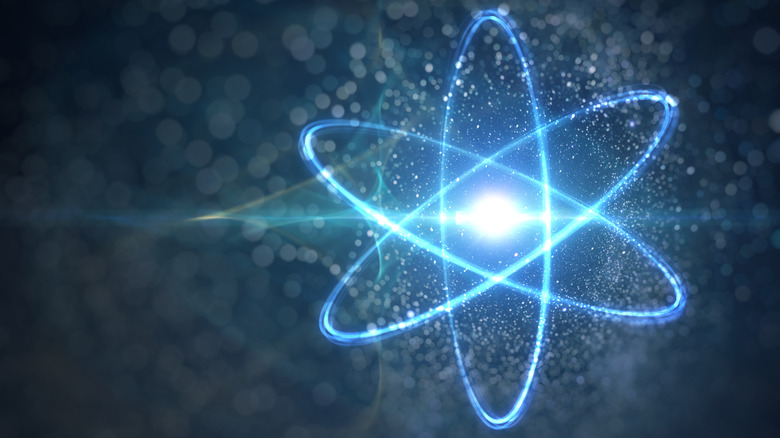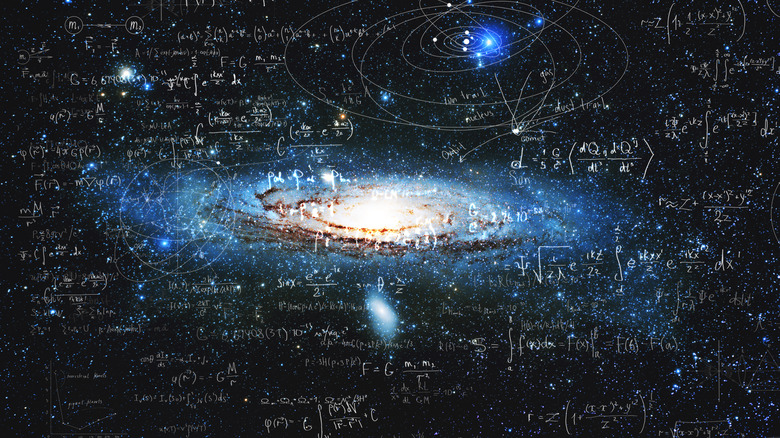Why Does Time Move Only In One Direction?
At some point, folks might have wondered the same question that's plagued philosophers and physicists for a long, long time: "Is time real?" Some researchers think not, as sites like The Conversation and NPR show. Mathematicians also think not, as the forum Ask a Mathematician discusses. Or at least, they say that mathematically, the past and future are identical to the present. In his 1905 theory of special relativity, Albert Einstein more or less confessed to the same, except that he described time as a function of space. In other words, each point in space is its own present. From a far enough distance and at a fast enough speed, you can technically occupy some observer's past or present because information can't travel faster than the speed of light.
But if this is true, then why can't you remember the future? It might sound ridiculous, but such questions have even been tackled by physicists like those at PBS Spacetime on YouTube. If reality really is an illusion, why do humans feel so concretely bound to some indivisible slice of "now"? Is it just a limitation of the rate of encoded sensory stimuli that accumulate over time as biochemical memories that bestow an impression of "the past"? Why does time feel like an arrow zipping onward in one direction? Not to get too pedantic, but it comes down to definitions. The unidirectional passage of time does indeed exist, provided we adjust our definition to equate time to entropy.
A disordered universe
Entropy is a tricky concept to grasp, but it's the reason we experience the passage of time. Adults don't grow young. Cake batter doesn't separate into eggs, milk, and flour. Detonated objects don't spontaneously reform. We experience events proceeding along a unidirectional path that doesn't go in reverse, a phenomenon dubbed "time's arrow," per Quanta Magazine. But strictly speaking, things could appear to go in reverse — it would just take an absurdly long amount of time. And if they did, you just might remember the future ... sort of.
Professor John Norton of the University of Pittsburgh, for instance, says that 1024 molecules of gas in a room have a sliver of a chance — 0.5 times 1024 — of shifting to one side of a room. It's not completely impossible, no matter how improbable. It's also not impossible that roiling molecules of cake batter could separate into eggs, milk, and flour. Some suggest that an entire brain — called a Boltzmann Brain — could flash into existence in the void of space.
Usually, however, molecules become more disordered over time. Put technically, entropy increases as molecules move from a state of order to disorder. Since the Big Bang, the universe has been on a one-way course from minimum to maximum entropy. At the end lies the heat death of the universe, a state of maximum disorder when temperature is evenly distributed everywhere and no distinct, ordered objects will ever exist again.
A closed-brain system
But why does entropy always increase, and how does it affect the perception of time that's in your head? For that we turn to the second law of thermodynamics,, which defines entropy as the available amount of transferable energy in a system. You could think of the universe as a single room in a house, if you'd like. Some patches are warmer, some are colder, and the air is always mingling together in different ways. In the end, so long as there's no extra energy going into the room (like from a heater or breathing person) or out of the room (like from an open door or poor insulation), then the room is a closed system, and temperature differences will always smooth out. In our analogy, the room is never going to gain any additional energy from any external source because there's nothing external to the universe. And so entropy always increases.
And how does this affect the memories in your head? As Philip Ball explains in the American Physical Society, we can't glean the precise distribution of molecules in a greater state of entropy, so that's why we have no memories of the future. Furthermore, memories themselves are chains of chemicals. Energy gets transferred when those chains form, which increases the overall disorder of their system, i.e., your brain, as discussions on Physics Forums say. Just like how cake batter can't likely reform eggs, milk, and flour, the molecules composing memories can't chemically reverse.
A quantum realm of entangled information
There's another, deeper driving force behind entropy and the arrow of time: quantum entanglement. At its heart, quantum mechanics is the physics of the very, very small, while classical mechanics is the physics of the big. Very small things include subatomic particles you might be familiar with, like the electrons and protons that compose atoms, and also ones you might be less familiar with, like muons and bosons. Big things include cats, your coffee, the sun, etc. The smaller things get, the weirder they get, because subatomic things abide by different mechanical rules than bigger things. But most crucially, bigger things are built on subatomic things. This means the physics of the very small affects the physics of the big — like the foundation of a house — right up to the flow of time's arrow.
As The Guardian summarizes and PBS Spacetime on YouTube fully explores, subatomic particles have properties like spin direction, up/down position, etc., that we can't know until the particle is measured. As soon as it's measured, we also reveal the hidden properties of its entangled twin — the particle that it's connected to somewhere in the cosmos through what Einstein called "spooky action at a distance," per The Conversation. But the more we measure, the more hidden properties we create. This is because we can't measure entangled properties fully or quickly enough. This is what causes entropy: the accumulation of evermore entangled, hidden information over time.
Reversing time's arrow
Despite everything we've said about immutable laws of physics and the unidirectional nature of time, some may still be tempted to ask: Is it possible to reverse time's arrow? Can we increase the entropy in a system for longer than a momentary Boltzmann Brain might flash into existence? Can we somehow remember the future or break out of our current slice of now? To this we say: kind of, but not in the way you might expect.
Remember that we mentioned that the past, present, and future are all mathematically identical, as the forum Ask a Mathematician describes? Put differently, this means that you should be able to look at a particle and determine, mathematically, the path that one particle has traveled since the Big Bang. So if you had a mega-super-ultra-powerful, nigh-godlike computer that could make such calculations, but for every particle everywhere? You'd be able to witness the past, present, and future everywhere all at once. And if we could control individual molecules and refashion them as we please? Bam: instant reversal of time's arrow, as Philip Ball discusses in Quanta Magazine.
This idea jives with what's called the "block universe." Per the block universe, past, present, and future exist simultaneously, everywhere all at once (yes, like the name of the movie). From an outside perspective, or to a godlike apparatus or entity, the entire cosmos could be glimpsed like a single timeless block accessible at any point, in any way.




